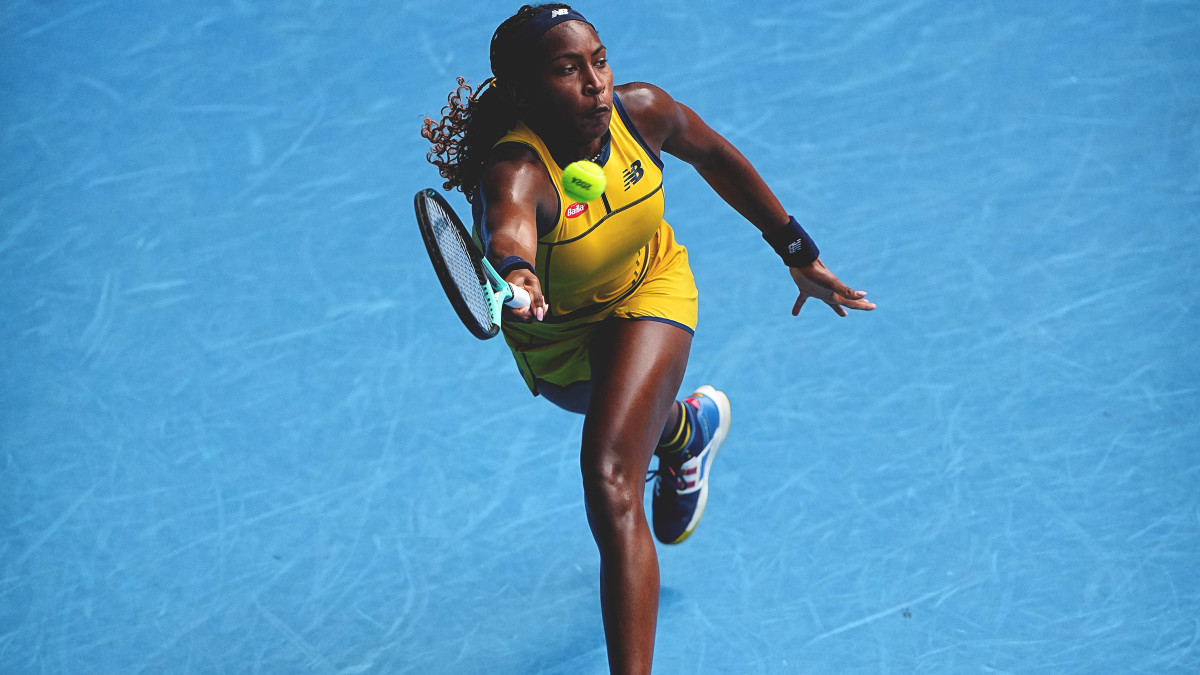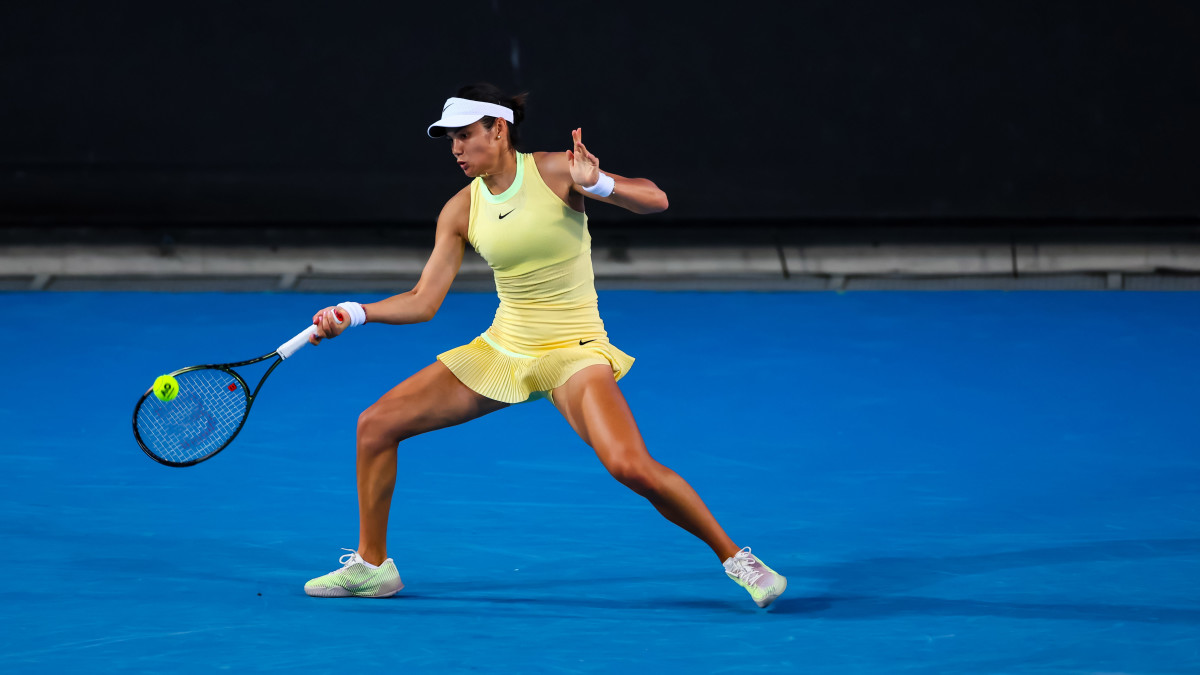Predicting the Aryna Sabalenka–Coco Gauff U.S. Open Final Rematch

Editors’ note, upon publishing: Questions in this mailbag were lightly edited for brevity.
As it is written, Wednesday is Mailbag Day. … We’ll be back after the final with our 50 Thoughts column.
Coco or Sabalenka, who you got?
Amy R.
We have always been suckers for the six-word question. And note that I am writing this in advance of this blockbuster Australian Open semifinal.
First, the base-covering. What a tournament it’s been for both. Which means both players will be disappointed if they don’t leave with the trophy. For Coco Gauff, she comes in trying to win her second major in a row. She has been working on her serve with TaskRabbit Andy Roddick—both in person in December and remotely—and the impact has been noticeable. She claimed the tune-up tournament in Auckland. In Melbourne, she’s won with dazzling tennis. And has won with C-level tennis (her assessment, not ours), and yet … here she is, four sets from a second major. She gets the player she defeated in the previous major final. And then an opponent outside the top 10.
Aryna Sabalenka … in the match previous to this tournament (the Brisbane final) she not only lost to Elena Rybakina but lost 6–0, 6–3. Suboptimal, to put it generously. Then there is Melbourne. She has simply dominated. She’s lost an average of three games per match and has yet to lose more than three games in a set. In the quarterfinals, she completely snuffed major winner Barbora Krejčíková in a match that was barely competitive. She has now played deep in the last six majors. She’s taken very little wear-and-tear. And while Sabalenka lost to Gauff in New York, in Melbourne she won’t have to compete with a rabidly partisan crowd.
If I had to pick, I’d probably stick with Gauff. Apart from recency bias … and the superior head-to-head … the highs aren’t as high, but the lows aren’t as low. I give Sabalenka a lot of credit. She has transformed her body and her rap as an erratic basher. She is capable of blasting anyone off the court with flagrant power. (We haven’t even mentioned her return to form after the serving yips, a malady that has ended the careers of others.) But I say Gauff in three.

Hey Jon,
Great mailbag. More questions:
1. [Craig] Tiley and AO understandably want to let fans paying for tickets reach their seats in a timely manner. How do the broadcast rights holders feel about it? It is tiresome and repetitive for viewers and makes me want to flip the channel as I watch people settle in with their trays of wine spritzers.
2. When great players from this era like [Iga] Świątek and Rybakina retire and your devout mailbag readers predictably email you about their Newport or even GOAT status, do you think the advent of on-court coaching will be used to argue that their accomplishments don’t quite compare to legends that didn’t have on-court coaching?
Enjoy AO!
Ian Scott, Winnipeg, Manitoba, Canada
A few years ago, the USTA announced it was giving players the chance to appeal line calls using technology. What? This would put an undue delay on matches and lead players to challenge dishonorably, abusing Hawk-Eye. Then replay worked, but we decided to do away with line judges entirely and simply use AI. After a spasm of outrage—the color would be bleached from the sport; jobs would disappear—we adjusted. We’re an adaptable lot. We’ll get used to it. So will fans, planning their entrances more courteously.
On-court coaching is a bit like racket technology, high-tech strings and players able to afford physios and nutritionists. It’s another reason why inter-era comparisons are silly. But nothing to hold against the current generation. They are just availing themselves of the technology and rules of the time.
Question from a fan: In your opinion, who are the most “old school” players now in regards to celebrations? Back in the [Björn] Borg era very few would celebrate clean winners, and would never celebrate errors (forced or unforced) from their opponents.
@rdamanofleisure
Good question. Some of it is situational, right? If you win 6–2, 6–2, 6–2, it’s terminally not cool to pump your fist and say, “That’s what I’m talking about.” And the most mellow player can win a five-setter and turn into Johnny Walker. Offhand, who are the understated winners? Jannik Sinner. Jessica Pegula, maybe. But I go you do you here. If you want to do cartwheels, go nuts. If you want to walk to the net as if you’ve done nothing more remarkable than spell c-a-t, that’s fine, too.
Hi Jon:
Can you take one more question about towels in the game? I’m amazed that players have to retrieve their own towels during the match, yet after the match is over, they often ask the ball kids to retrieve their towels from the bins for them. Not to mention the (I think gross) practice of players throwing their wet towels, wristbands, headbands, ripped shirts, etc. to the crowd at the end of the match. Is it time that maybe we can go back to asking the ball kids to hand the towels to players during the match? It might speed things up a bit. TBH, if I were a ball kid I’d be loath to deliver a wet towel to a player after the match, but…
Thanks,
Kevin Roe, Fort Wayne IN
A few years ago, I wrote a piece on the appeal of the T-shirt cannon. Why do fans risk life and limb (and dignity) for a stupid T-shirt fired out of an air cannon? The answer: People have an irrational fondness for free stuff. All the more so when it is scarce. (If you have a free T-shirt waiting for you under your seat, it’s cool; if you are one of 1,000 fans to catch that same T-shirt and it has scarcity value—others wanted it; you were among the select few to get it—even better. I think this explains the towel phenomenon. Players worth tens of millions will jam free towels into their bags as if they are provisions after a Himalayan trek.
Hi Jon.
Can I use some outcome bias here? The more time passes by, the more I convince myself of the oddity that the 2021 US Women’s Open final was. I mean, Emma [Raducanu] doesn’t have a single deadly weapon in her repertoire, she shouldn’t scare anyone. The other active player with one Grand Slam under her belt (other than Sabalenka)—Jeļena Ostapenko—is clearly a case you don’t want to play against. Both have “only” one Grand Slam, but clearly one of them is not a threat on the court. I’ll concede that one of them is a menace on the court, though.
Is Emma “doomed” to repeat one-time champions and that’s it? I think she can bounce back from her current shape, but bah-bye slam trophies.
Carlos, Seattle
Um. Did anyone else catch Marta Kostyuk referencing Raducanu the other day? Her run was one of the more remarkable achievements in recent tennis history. From the qualifier draw to the trophy. I think we got too caught up in her age and ethnicity and lost sight of the sheer improbability. (In March Madness terms, this was a 16-seed not only winning its first game but then the entire NCAA title.) And Raducanu deserves full credit here. She won the seven matches. Which is more than most players will ever do. But runs have a way of regressing to the mean.

Do I think she can be a solid top-50 player? Sure. Get her ranking high enough so she can again be a seed at a major? Maybe. Win a second major? Doubtful. Between her blinkering health and her lack of finishing power, it will be tough. But who knows? Anything can happen. I mean, Raducanu once won a major.
Serious point: This is why we should be skeptical, if not disdainful, of certitude. “I give Andrey Rublev zero chance against Sinner?” Really? A top-five player can’t beat another top-five player? If Raducanu can go from a qualifier draw to the U.S. Open champion, anything can happen.
Hey Jon,
So glad to be watching the AO again. But I have two questions.
1. What makes the AO the “wokest tournament ever”? Is “woke” now the reflex word people use to describe something they don’t like…in tennis?
2. When was the last time so many former Grand Slam champs lost in the first round? It’s easier to explain away [Naomi] Osaka’s result and to a certain extent [Dominic] Theim’s. But I worry the most about [Andy] Murray and [Stan] Wawrinka. Could 2024 be it for the two future Hall of Famers?
Ok, four questions :)
Thanks, name lost
I saw Jordan Thompson make this reference. Whatever you think of wokeness, how does it apply to speeding up match times? Inasmuch as woke is “attentive to societal issues and the marginalized,” I have seen a few touches. References to the First Nations art and culture; an AO Pride Day. But how woke can a tournament be when it ducks the issue of naming a court for a blazing “homophobe”?
Anyway, the arcs of tennis careers have never bent this long. (More cynically: The financial incentives to play have never been greater.) So this probably distorts the math. But go case by case and the explanations range from age (Marin Čilić) to rust (Osaka) to regression (Markéta Vondroušová) to injury (Thiem).
Jon,
I would ask who’s the worst you’ve ever heard in the booth but I’m sure you’re too classy to say. So instead I’m just curious: have you ever had any desire to call matches?
P.R.
I’m going to refrain from naming names to answer the first question. There was a late-night U.S. Open match from maybe 20 years ago that is still discussed. A broadcaster who knew little about tennis was brought in, and the result was legendary—literally, as in, the legend of this broadcast is still discussed and lines repeated. And thank you for asking, but I have no desire to call matches. Some of this is just a time and bandwidth issue. I also don’t think I’d be particularly good! Easier to talk shop in a studio.
ENJOY THE LAST FEW DAYS, everyone!
